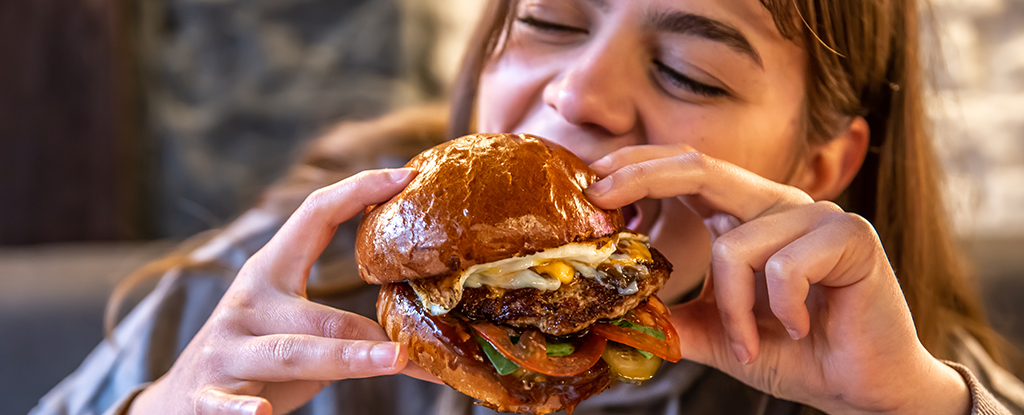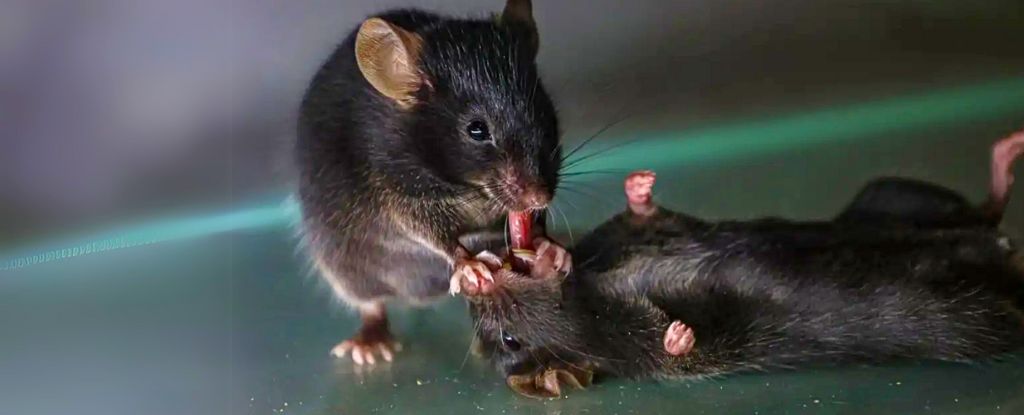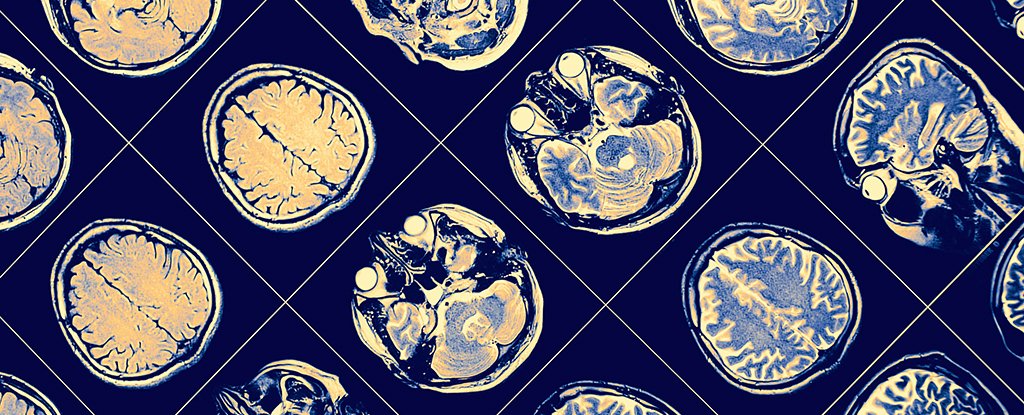Choose your comfort foods carefully. Stress-eating may initially soothe a worried mind, but according to a new study, certain fatty foods can also fuel more anxiety in the long run.
Eating a particular kind of high-fat diet – mainly saturated fats from animal products – disrupted the gut microbiome of lab rats and changed their behavior, the study found.
Rats on this diet also showed higher expression of genes involved with neurotransmitter activity, specifically influencing the brain chemical serotonin in ways known to boost anxiety.
Along with well-known risks like obesity or heart disease, these findings suggest anyone who eats significant quantities of saturated fats should also consider potential mental health effects, says lead author Christopher Lowry, a professor of integrative physiology at the University of Colorado Boulder.
“Everyone knows that these are not healthy foods, but we tend to think about them strictly in terms of a little weight gain,” Lowry says. “If you understand that they also impact your brain in a way that can promote anxiety, that makes the stakes even higher.”
While most people experience moments of intense worry and concern, some struggle with more intense, relentless periods of anxiety that risk interfering with their day-to-day lives. An estimated 300 million people globally live with an anxiety disorder, according to the World Health Organization, making anxiety disorders the most prevalent of all mental disorders.
Anxiety is a complex, variable feeling shaped by many factors, and any dietary influences remain poorly understood. Yet previous research has also shown a similar link between high-fat diets and anxiety in rats, and there are hints of a similar association in humans.
In the new study, Lowry and his colleagues sought to shed more light on this relationship between saturated fats and anxiety. They used adolescent male rats, splitting them into two groups and feeding them different diets for nine weeks.
One group received a standard lab-rat diet with about 11 percent fat. The other group received a diet with about 45 percent fat, mainly featuring saturated fats from animal products.
The researchers used fecal samples to monitor the rats’ microbiomes throughout the study. After nine weeks, they also administered behavioral tests.
The rats on the high-fat diet not only gained weight, the researchers report, but also had significantly less diversity of gut bacteria than rats in the control group.
In addition to lower microbial diversity, rats on the high-fat diet had more bacteria from the phylum Firmicutes and fewer from Bacteroidetes, a ratio that in humans is associated with obesity and an industrialized diet – i.e., lots of refined grains, processed meats, and fried foods.
The researchers also noticed elevated expression of three genes among the high-fat diet group. Those genes – tph2, htr1a, and slc6a4 – are involved with the production and signaling of serotonin, a neurotransmitter that serves an array of important functions.
Although popularly pigeonholed as a mood booster, serotonin wears many hats. It helps us vomit, for example, and plays a key part in bodily processes like wound healing and digestion.
Serotonin’s role in depression remains murky, but it does wield a potent influence over mood – and not always for the better. Some types of serotonin-producing neurons, the researchers explain, can trigger anxiety-like behaviors in animals when activated.
In the new study, increased expression of those three genes among the fatty-diet rats was especially pronounced in the dorsal raphe nucleus cDRD, a region of the brainstem associated with stress and anxiety where most of the brain’s serotonin is produced, the study found.
In previous research on humans, higher expression of tph2 in the cDRD has been linked with mood disorders, the researchers note.
“To think that just a high-fat diet could alter expression of these genes in the brain is extraordinary,” Lowry says. “The high-fat group essentially had the molecular signature of a high-anxiety state in their brain.”
There are many types of fats, the study’s authors point out, and it would be foolish to lump them all together. Certain fats like fish oil and olive oil, for instance, offer anti-inflammatory and brain-boosting effects.
But saturated fats from animals are a different story. On top of other potential health risks, Lowry’s research suggests a diet rich in these fats can promote both short-term and long-term anxiety, especially at younger ages.
The study was published in Biological Research.





